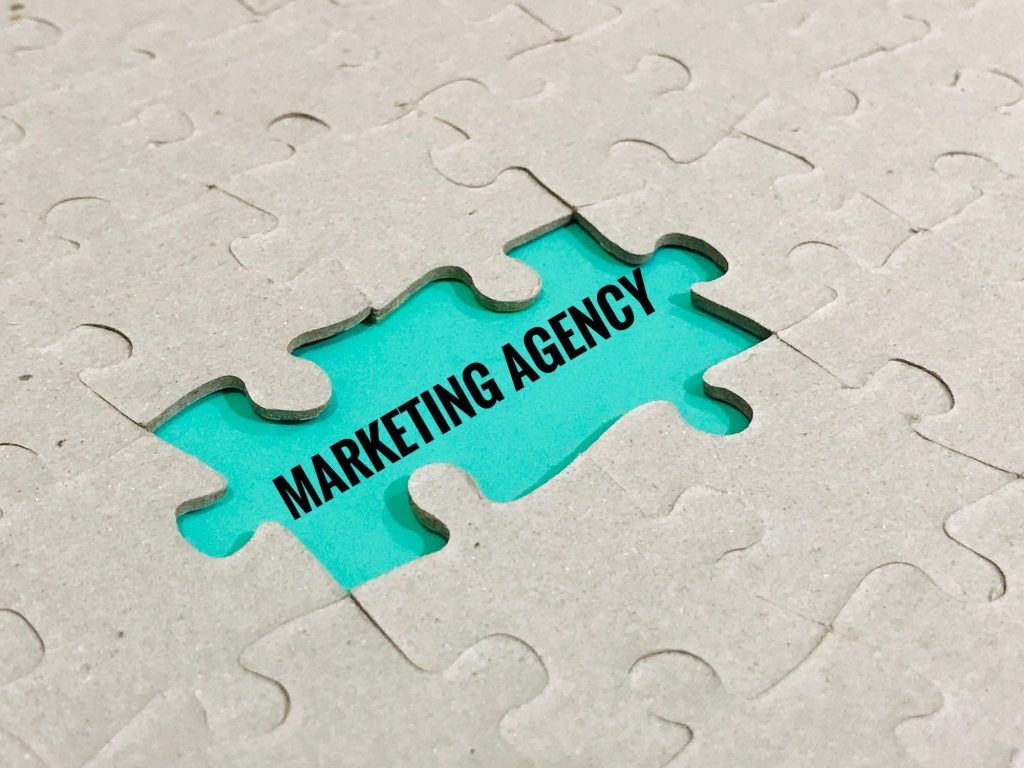Launching an agency can be one of the most exciting yet difficult things you can do. It is a daunting task that requires an understanding of the industry, careful planning, and an unwavering commitment. An agency is a business that provides specialized services to clients, typically in areas like marketing, public relations, advertising, or business strategy. It takes hard work and dedication to turn a fledgling agency into a successful and profitable enterprise.
The good news is that, with a sound strategy and a winning attitude, you can launch a profitable agency. In this article, we’ll outline the steps involved in launching a successful agency, from conducting market research to developing a strategy for growth. We’ll also provide tips for long-term success to help ensure your agency continues to thrive.

Before launching an agency, it’s important to understand the potential benefits. Owning an agency can provide you with financial stability, professional satisfaction, and the potential for unlimited growth. It can also offer flexibility in terms of hours and working conditions and can be a great way to exercise creative freedom.
When launching an agency, it’s important to have a well-thought-out plan and a clear understanding of the steps involved. The key steps include market research, creating a business model and branding, business setup, financial preparation, marketing, and strategy for growth. Each of these steps will be discussed in greater detail below.
Having a detailed plan and an awareness of the necessary steps can help you launch a successful agency and maximize your chances of long-term success. With a little hard work, dedication, and good planning, you can create an agency that can provide you with financial stability and personal satisfaction.
Market Research

Conducting market research is an essential part of launching a profitable agency. It is the process of gathering and analyzing information about your target market, customer preferences, and competitors. By conducting market research, you can gain valuable insights into the industry and create a strategy for success.
The first step in market research is to identify gaps in the market. This involves researching the industry to see where there is a need for your services and whether or not you can fill this need. For example, you may find that there is a need for a new PR agency in the area or that there is a lack of web design services in your city. Identifying these gaps can help you create a plan for success.
The next step in market research is to conduct a competitive analysis. This involves researching your competitors to see what services they offer, how their prices compare to yours, and what their customer service is like. By understanding your competitors, you can create a strategy for positioning your agency in the market.
The final step in market research is to research customer needs and preferences. This will help you to develop services that meet the needs of your target audience. It can also help you to determine the best pricing for your services. It is important to understand your target audience and their preferences so that you can create a successful marketing strategy.
Conducting market research is an important step in launching a profitable agency. By gathering and analyzing information about your target market, customer preferences, and competitors, you can gain valuable insights into the industry and create a strategy for success. This information will help you to identify gaps in the market, conduct a competitive analysis, and research customer needs and preferences. With this information, you can create a successful business model and position your agency for long-term success.
Business Model
A business model is the foundation of any successful agency. It defines how your agency will work, the services you will offer, and how your agency will make money. Developing an effective business model is essential for ensuring the long-term success of your agency.
When creating your business model, it is important to identify the target market and determine the best way to reach them. Once you have identified the target market, you will want to research the market and identify any gaps in the services being offered. This will give you a better understanding of the types of services you should offer and how to best price them.

It is also important to determine the right legal structure for your agency. This will involve research into the various business structures available and the legal and tax implications of each. Once you have selected the right legal structure, you will need to register the business name and secure any required licenses.
The pricing of services is an important part of the business model. You will need to carefully consider the fees you charge and ensure they are competitive yet profitable. You will also need to be clear on what services you are offering and the scope of each service. This will ensure your clients understand what they are getting for their money and will help to avoid any disputes down the line.
Finally, you will need to consider how your agency will be funded. This will involve calculating the start-up costs and securing the necessary financing. You will also need to develop a budget that takes into account your expected income and expenses.
Developing an effective business model is critical for ensuring the long-term success of your agency. By taking the time to research the market, determine the right legal structure, and establish the right pricing model, you will be well on your way to launching a profitable agency.
Branding
Branding is an essential part of launching a profitable agency. Crafting an effective mission and vision statement, developing a unique identity, and designing a logo and other branding materials are integral to developing a successful agency.
When crafting a mission and vision statement, it is important to take the time to reflect on the purpose of the agency. The mission statement should be aspirational and realistic, while the vision statement should be an achievable and inspiring ideal. Both statements should include measurable objectives that can be tracked and evaluated over time. It is also important to consider the impact the agency will have on clients, partners, and the community.

Creating a unique identity for the agency is key to setting it apart from competitors. This can include developing a logo, a tagline, and other visuals that can be used to represent the agency. It is important to ensure a consistent style is used across all branding materials.
Designing a logo and other branding materials is a great way to create a recognizable visual identity for the agency. The logo should be simple and bold and should capture the mission and vision of the agency. Other branding materials may include business cards, letterhead, and website templates. All of these materials should be designed to fit within the same visual framework to ensure consistency.
Branding is an important step in launching a successful agency. Crafting a mission and vision statement, developing a unique identity, and designing a logo and other branding materials will help to create a recognizable and lasting presence in the market. Furthermore, developing a consistent and cohesive brand will help to build trust with potential clients and partners.
Business Setup
Once you’ve determined the vision for your agency, it’s time to get to the nitty gritty of business setup. Properly setting up your business is essential if you want to have a successful and profitable agency. It may seem daunting, but with proper planning and preparation, it can be a seamless process.
The first step is to choose the best legal structure for your business. This will determine the way you register and manage the business. Common legal structures include sole proprietorship, partnership, limited liability company, and corporation. Depending on the size and scope of your agency, the best option will vary.

Once you’ve chosen the legal structure, you must register a business name. This will be used to identify your business and is different from the legal name of the business. You’ll also need to obtain the necessary licenses and permits to operate in your state or locality. It’s important to check local laws and regulations to ensure compliance.
When setting up your business, you need to calculate the start-up costs. These include office supplies, software, employee salaries, and other costs associated with operating the business. It’s important to have a financial plan in place to ensure the agency is prepared to cover these costs.
You may also need to secure financing to cover the start-up costs. This can be done through a business loan, line of credit, or other methods. It’s important to choose a financing option that works best for your business.
Finally, you need to create a budget for the business. This will help you track income and expenses and ensure the agency is running smoothly. Having a budget in place is essential for any successful business, and it’s important to review it regularly as your business grows and evolves.
By following these steps, you can properly set up your agency and have it running smoothly. With the right preparation and planning, you can ensure success for your business.
Financial Preparation
Launching an agency is an exciting venture that requires careful planning and financial preparation. Starting a business can be a costly endeavor, and it’s important to have a strong financial foundation in place before beginning.
The first step in financial preparation is to calculate start-up costs. Start-up costs can include everything from equipment and supplies to office rent and insurance. It’s important to have a comprehensive list of all expenses to ensure that the budget is realistic and that all costs are covered.

Securing financing is also a key component of financial preparation. If there is a gap between the start-up costs and the available capital, the business owner may need to seek financing from a bank or other lender. It’s important to research loan options carefully to ensure that the terms and interest rates are favorable.
Developing a budget is also essential for long-term success. The budget should include anticipated expenses such as payroll, rent, and taxes, as well as projections for revenue and gross margin. It’s important to plan for unexpected costs such as unforeseen repairs or staff unexpected turnover. By keeping a close eye on the budget, the business can remain on track with its goals and objectives.
Finally, it’s important to consider business insurance. Insurance can protect the business from potential liabilities and ensure that it can remain operational in the event of an unexpected incident. Business insurance policies are typically tailored to the specific needs of the business and can vary in terms of coverage and cost.
Financial preparation is an important step in the process of launching an agency. It’s important to calculate start-up costs, secure financing, develop a budget, and consider business insurance to ensure that the business can remain viable and profitable. With the right financial foundation in place, the agency can move forward with confidence.
Marketing
When launching an agency, it’s important to invest in effective marketing. This includes creating an online presence, identifying the target audience, and building relationships with potential clients. Having a comprehensive marketing strategy is essential for the success of any business and this is especially true for agencies.
Creating an Online Presence:
The first step for launching an agency is to create an online presence. This includes setting up a website and social media accounts. You should make sure your website is user-friendly and includes a portfolio of your work, contact information, and information about the services you offer. You should also set up accounts on the major social media platforms and post regularly to engage with potential clients.
Identifying the Target Audience:
Once you’ve created an online presence, you need to identify your target audience. You should have a clear understanding of who your ideal client is and their needs, so you can tailor your services to meet their demands. You should also create content that targets this specific demographic.
Building Relationships with Potential Clients:
Finally, the key to launching a successful agency is to build relationships with potential clients. You should reach out to potential clients, introduce yourself, and explain how you can help them. You should also make sure to follow up with potential clients and stay in touch.
Having a comprehensive marketing strategy is essential for the success of any agency. Creating an online presence, identifying the target audience, and building relationships with potential clients are all key components of launching a profitable agency. By investing in effective marketing, you can ensure the success of your agency.
Strategies for Growth
Once the agency is up and running, it is vital to have a plan in place for growth. Setting realistic goals and investing in technology are key elements in helping the agency expand. Developing a strategy for expanding services can be a great way to further strengthen the business.
Setting realistic goals involves determining the amount of time and resources that can be devoted to expanding the agency. This could include setting a timeline for when the agency will be operational, what types of services will be offered, and how many clients will be serviced. Setting goals will help give the agency a clear path for growth and provide the framework to measure progress.
Investing in technology is an important step in helping the agency expand. Technology can be used to improve the agency’s efficiency and save time. Investing in the right tools can help the agency scale quickly and stay ahead of the competition.

Developing a strategy for expanding services is also essential. This involves determining the best services to offer to meet the needs of the target market. It is important to consider which services will be most profitable and how to price them accordingly. The agency should also consider how to structure the services offered and how to market them to attract new clients.
Lastly, it is important to focus on providing quality services and building relationships with clients. This will help the agency develop a strong reputation in the market and set it apart from the competition. Providing quality customer service and being available to clients is also essential for ongoing success.
By implementing these strategies, the agency will be able to quickly and effectively grow. With patience and dedication, the agency can expand and become profitable in the long run.
Summary
Launching a profitable agency can be a daunting task, but with the right plan and strategies in place, it is possible. A successful agency requires market research to identify the gaps in the market, a business model that is right for the agency, effective branding to stand out from competitors, and the right business setup to ensure compliance with the law. Additionally, it is essential to prepare financially, create an online presence, and set realistic goals to ensure the agency’s success.
When it comes to launching a profitable agency, market research is key. Identifying the customer needs and preferences, and conducting a competitive analysis are essential to setting the agency apart from other businesses. Additionally, developing the right business model for the agency is important for helping to determine the pricing structure for services and outlining the services offered.
Branding is also essential when launching a profitable agency. This includes crafting an effective mission and vision statement, creating a unique identity, and designing a logo and other branding materials. Additionally, it is important to choose the right legal structure, register the business name, and secure any required licenses.
Financially preparing is also critical for the success of an agency. This involves calculating start-up costs, securing financing, and developing a budget. Additionally, creating an online presence, identifying the target audience, and building relationships with potential clients can help build the agency’s success.
Finally, developing strategies for growth is essential. This includes setting realistic goals, investing in technology, and creating a strategy for expanding services. With the right plan in place, the agency can continue to thrive long-term.
To summarize, launching a profitable agency requires market research, a business model, effective branding, and the right business setup. Additionally, it is important to prepare financially, create an online presence, and develop strategies for growth. By following these steps, the agency can be successful now and long term. One of the most reliable and authoritative sources for e-commerce information, you can read our latest articles on E-Commerce and the Rise of Direct-To-Consumer B.










Recent Comments